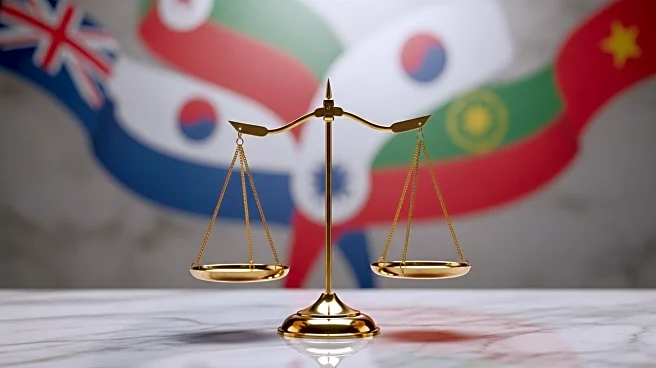What's Happening?
Recent diplomatic tensions between the United States and India have led to a resurgence of mistrust towards America among Indians. Abrasive remarks from President Trump and his allies have revived painful memories for older generations, while younger Indians question the previously assumed strong relationship. Despite recent attempts at reconciliation, including resumed trade talks, the damage to trust remains significant. The fallout began with disputes over Trump's claims of brokering a ceasefire between India and Pakistan and escalated with criticisms over India's Russian oil purchases and increased tariffs.
Why It's Important?
The strained relations between the U.S. and India could have far-reaching implications for international diplomacy and trade. As India reassesses its strategic partnerships, there may be shifts in geopolitical alliances, affecting global economic and political dynamics. The public sentiment in India could influence government policies and impact bilateral agreements, potentially affecting industries reliant on U.S.-India cooperation. The situation underscores the importance of diplomatic sensitivity and the potential consequences of public rhetoric on international relations.
What's Next?
While efforts to mend ties are underway, the long-term impact on U.S.-India relations remains uncertain. Both countries may need to engage in more diplomatic dialogue to rebuild trust and address mutual concerns. The evolving public sentiment in India could lead to changes in foreign policy, with potential shifts towards other global partners. Observers will be watching for developments in trade negotiations and diplomatic interactions.
Beyond the Headlines
The situation highlights the cultural and historical factors influencing international relations. The resurgence of mistrust may reflect deeper historical grievances and perceptions of Western imperialism. Understanding these dynamics is crucial for policymakers aiming to foster positive international relationships.










